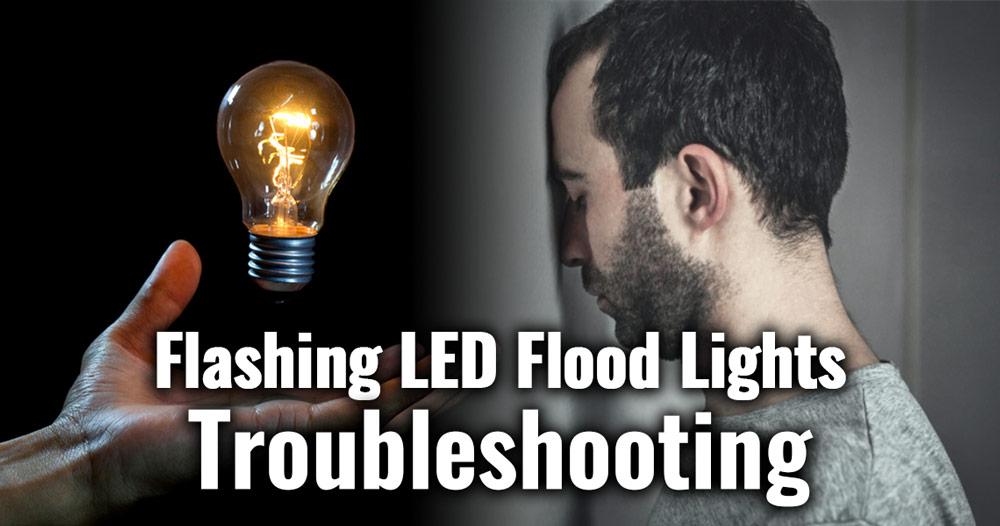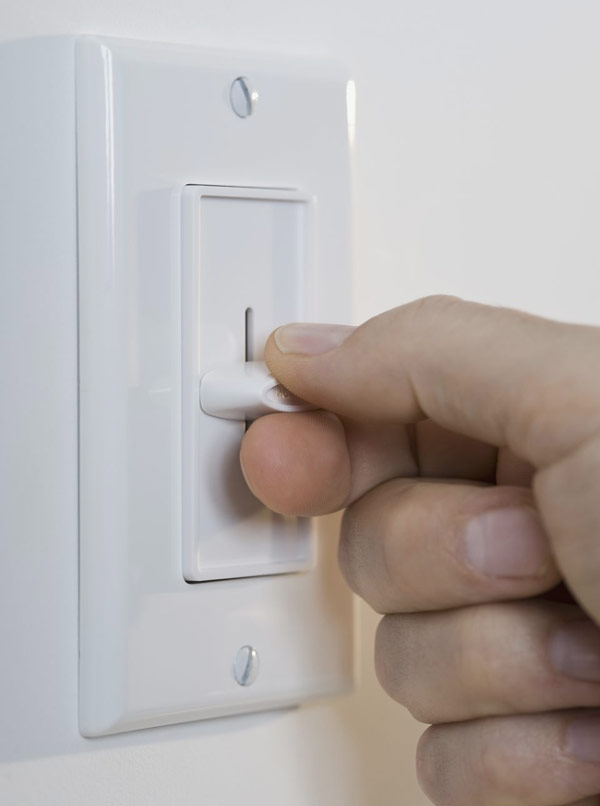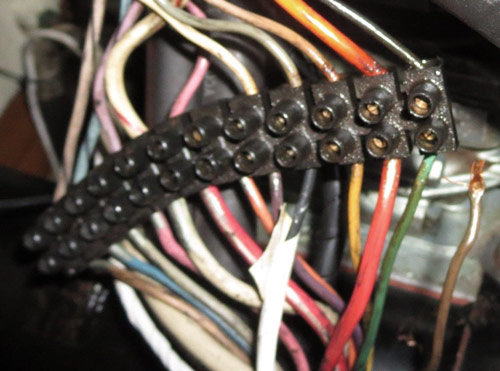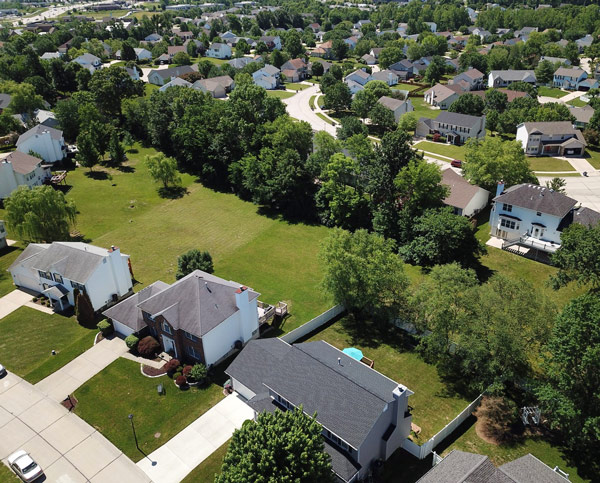
A common problem with LED flood lighting is that it may flicker; it may flash on and flash off too fast. This can be a nagging inconvenience that refuses to go away by itself. As floodlights are used to illuminate a large or distant area, such flickering can undo the very purpose for which they are being used. However, to zero in on what makes the floodlights behave in such an erratic manner is not easy. There could many reasons for this. One of them could be some kind of fault in the driver circuit for the proper supply of electrical current in the floodlights. Besides, there could be many reasons — from the mundane to unique — for the lights to flicker.
You are watching: Why do LED Flood Lights Flashing On and Off – How to Fix?
In context of LED floodlights, there are often references made to 12V and 24V options. However, it’s important to keep in mind that most LEDs are in fact 3V DC devices. It is through the configuration of the LEDs in parallel and series combinations that the voltage of the LED floodlights is made to match the voltage of a particular power supply. 12V LEDs have a shorter distance of 1-inch compared to 2-inch in 24V LEDs between the cut-line intervals. This gives more flexibility to 12V devices in cutting the strips to the desired length. 24V devices offer maximum efficiency as the potential for voltage-drop is less compared to those of 12V. So, in the context of LED floodlight flashing, it makes more sense to use 24V LED bulbs as this would result in less amount of voltage-drop as the current passes through the circuit. With 24V LED bulbs, the voltage fluctuation would be less and there would be lesser potential of flickering.
Another thing that makes an informed choice about opting for 12V or 24 V LED bulbs important is the purpose for which the floodlights are being used. If the purpose is to illuminate an area near the light, it is advisable to use 12V bulbs as it would carry electricity at low voltage making the output dissipate in the vicinity rather than going farther with greater degree of intensity, which would require higher voltage to drive it at a greater force.
Reasons for LED floodlight flashing on/off
An occasional flickering of LED floodlights is normal and there could be simple reasons for this. However, it is worthwhile to note if the flickering is really occasional or happening regularly. You need to see and judge if the problem is severe. Is it giving a hint that something is seriously wrong either with the lighting system or with the electrical circuit. If the flickering did not happen before and is a recent development, you know something wrong has happened and you need to investigate and figure out what the real cause is before you can fix it. Here we have dealt with some of the most common reasons that can make the LED floodlights flicker. One or more of these reasons could be behind the malady that’s afflicting your LED floodlights.
1. Dimmer Switches
 Dimmer switches are responsible for most cases of LED floodlight flickering. Dimmers are part of the circuit that is attached to the floodlight for better handling of higher electrical loads. In the earlier versions of floodlights when incandescent and CFL bulbs were used, the dimmers were made to handle high voltage devices, which would not work well with LEDs, which are in fact low-voltage bulbs. When those old dimmers are used in LED floodlights, they usually do not play well with this new lighting variant and this causes the LED floodlights to flicker. However, the latest variety of dimmer switches and dimmer LED bulbs are compatible and they work alright together.
Dimmer switches are responsible for most cases of LED floodlight flickering. Dimmers are part of the circuit that is attached to the floodlight for better handling of higher electrical loads. In the earlier versions of floodlights when incandescent and CFL bulbs were used, the dimmers were made to handle high voltage devices, which would not work well with LEDs, which are in fact low-voltage bulbs. When those old dimmers are used in LED floodlights, they usually do not play well with this new lighting variant and this causes the LED floodlights to flicker. However, the latest variety of dimmer switches and dimmer LED bulbs are compatible and they work alright together.
How to fix
So, LED floodlight flickering can be avoided by using the right combination of dimmer switches and dimmer LED bulbs, which are compatible to each other. If the LED floodlights are flickering, the first thing that one should check is the driver circuit and make sure that the dimmer switches and the LED bulbs are of the latest variety and both are dimmable.
2. Circuit design & supply capacity
Read more : The Best Fabric Protectors of 2023
Very often it is found that the electrical circuits put in place are decades old when there were few of the electrical appliances in use today. Based on the needs of the time, the circuits used to be simple and meant to bear the load of a few bulbs and fans. Compared to those times, today we are using a lot more electrical gadgets and appliances which pull a great deal of electricity from the system which were neither envisaged nor built to meet this demand. As a result, the circuit is not able to meet the demand of all the electrical appliances efficiently, causing them to underperform or consume too much of electricity.
So, another important reason for the flashing on and off of LED floodlights could be the overloaded circuit of the gone-by era. Is it that when you switch on an electrical appliance such as the air-conditioner or the washing machine, the flickering starts? If this is so, it means that your electrical circuit could be overloaded, meaning the appliances are drawing more power than the circuit can supply without problem. Every electrical circuit has a limited capacity as far as the supply of power is concerned. If we try to draw more power by plugging in different appliances, it will not be able to efficiently supply the required power for all the electrical gadgets to run smoothly and efficiently. If the flickering starts when large appliances come on it could be because they may require more electricity to start up, causing a drop in voltage and the resultant flickering or dimming of the lights. This is a very common phenomenon and happens with even well-designed electrical systems.
How to fix
If the flickering is only during the start up of other appliances, it can be ignored. But if it is severe and persistent, an electrician should be called in to investigate what makes the electrical system work so poorly. It could be that some appliances are consistently drawing more electricity because of a faulty motor or the electrical system may simply be overloaded and need to be enhanced.
3. Loose & Faulty Wiring, Connections
 The consistent flickering of LED floodlights may have a more dangerous origin than the overloaded circuit or voltage fluctuation. It can be due to the loose wiring, old and outdated fixtures, switches, breakers, and connectors. The problem may be localized in a particular component of the entire wiring or it could be systematic and generic but linked to the poor quality of wiring. Besides flickering, it could result in poor performance of all other electrical appliances. Worse, a major cause of fire in residential and commercial buildings all over the world is the poor quality of wiring and old and faulty switches and fixtures that should have been changed long ago. Loose connections can cause arcing where the current jumps over the gap in the loose part of the connection. This is a major cause of house fire. Similarly, a loose connection in the electrical circuit can cause higher resistance at the loose point, which in turn can get heated to dangerous proportions, endangering the safety of the entire establishment.
The consistent flickering of LED floodlights may have a more dangerous origin than the overloaded circuit or voltage fluctuation. It can be due to the loose wiring, old and outdated fixtures, switches, breakers, and connectors. The problem may be localized in a particular component of the entire wiring or it could be systematic and generic but linked to the poor quality of wiring. Besides flickering, it could result in poor performance of all other electrical appliances. Worse, a major cause of fire in residential and commercial buildings all over the world is the poor quality of wiring and old and faulty switches and fixtures that should have been changed long ago. Loose connections can cause arcing where the current jumps over the gap in the loose part of the connection. This is a major cause of house fire. Similarly, a loose connection in the electrical circuit can cause higher resistance at the loose point, which in turn can get heated to dangerous proportions, endangering the safety of the entire establishment.
The problem can be just anywhere: a faulty switch, old fixture wiring, worn-out connectors, service conductors in the electrical panel. If there is an increase in flickering and it’s not due to any change that you have made in the electrical circuit, loose wiring could be the reason. The loose wiring could also be found in the fixtures used in the LED floodlights.
How to fix
The best way to deal with loose wiring is to call in an electrician as it is too dangerous for an amateur to try to resolve the issue. It is important to remember is that loose wiring or connection through any of the accessories used in the wiring could not only cause the electrical devices and appliances to underperform or draw more electricity than normal but also invite hazards such as house fire and electrocution.
4. Voltage Fluctuation
Read more : How should food workers deter pests from outdoor dumpsters
While there can be many reasons for this, voltage fluctuations in the fixture’s wiring are often found to be the culprit. The fluctuation of voltage affects the amount of current reaching the output device, the LED (Light Emitting Diode) floodlights in this case. To determine if the voltage fluctuation is the cause for the flicking of the LED floodlights, take note of how it behaves when another electrical appliance or system is in use. If there is flashing in the floodlight just when the other electrical system is turned on, it is due to the voltage fluctuations.
A very common reason for the LED floodlight flickering is voltage fluctuation in the electrical circuit of the house. Similar voltage fluctuation can also take place in the circuit of the floodlight where multiple low-voltage LED bulbs are connected to each other and set in parallel and series combinations. Voltage fluctuation can be perceived by an unexpected and unpredictable dimming of light, flickering of lights including LEDs when a large electrical appliance is turned on and when the flickering does not stop even when such an appliance has stopped running. If the voltage fluctuation is in the range of 115 to 125 volts, it’s normal. But if it is above 125 volts, it certainly is one of the reasons for the flickering of LED floodlights. You can gauge the voltage fluctuation by using a voltmeter.
5. Neighbors’ Electricity Consumption
 The supply of electricity in your house is through a transmitter that you share with others in your neighborhood. Compared to how much electricity you consume, your neighbors put together use up a lot more electricity and this has a bearing on the voltage of electricity that you get in your house or commercial establishment. It is possible that when your neighbors start using power-intensive appliances, there is a voltage drop in the electrical circuit in your house. Such dropping of voltage can cause your LED floodlights to flicker.
The supply of electricity in your house is through a transmitter that you share with others in your neighborhood. Compared to how much electricity you consume, your neighbors put together use up a lot more electricity and this has a bearing on the voltage of electricity that you get in your house or commercial establishment. It is possible that when your neighbors start using power-intensive appliances, there is a voltage drop in the electrical circuit in your house. Such dropping of voltage can cause your LED floodlights to flicker.
Troubleshooting
To ensure this does not happen just because your neighbors are consuming a lot of electricity, you can consult an electrician, and he could find a solution to the problem. But it is also possible that along with your LED floodlights, other similar lightings in your neighborhood are also flickering. If this is the case, the problem, most probably, is with the utility service itself. You can report it to them and ask them to fix the problem.
6. Entire House Facing Problem
Sometimes, you may notice that it’s not only the LED floodlights, but all the lights in the house are flickering. In this case, the problem could be lying in the meter box and can be rectified by the electrician. The flickering of LED floodlights in isolation of other electrical gadgets and appliances indicates that the problem could be localized in the floodlight itself. But if the problem is associated with the functioning and behavior of other appliances, we must realize that the problem stems from elsewhere – and it may have an innocuous as well as a sinister origin. It is here that we need to be more cautious and careful. If the problem is with voltage fluctuation, it may damage not only LED floodlights but all other gadgets and appliances that work on electricity.
Troubleshooting
If the entire neighborhood is facing the same problem, it would probably mean that there is a systematic fault with the supply line of the service provider. In this case, the flickering of floodlight is indicative of a larger problem that the service provider itself can rectify.
Conclusion
Flickering of LED floodlights could have any of the reasons from a simple malfunction in the meter box to neighbors consuming more electricity. But it may also have a more serious connotation such as dangerous and loose wiring to rampant voltage fluctuations, which can endanger your life and property. As the problem could be a hint of something seriously wrong with the electrical system at your place, it is in your best interest to get it checked and rectified by a qualified and experienced electrician. In some cases, the problem could look simple and may prompt you to try your hands to fix it yourself. Though it is always more advisable to ask an electrician to do this, you must take all precautions before you attempt to solve the problem yourself.
Source: https://gardencourte.com
Categories: Outdoor


